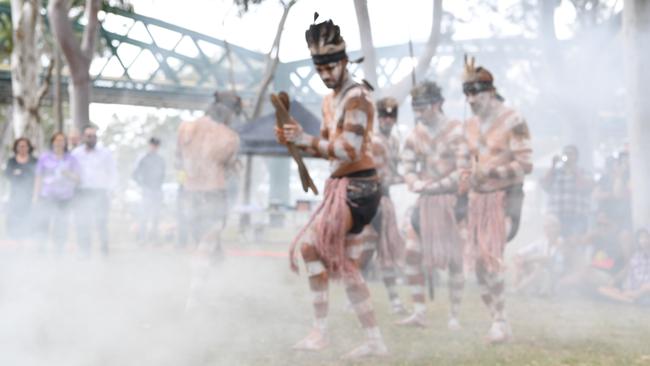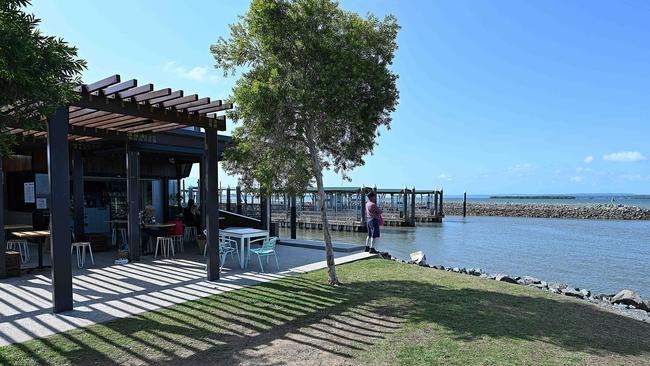Native, freehold title questions answered amid landmark claims across Qld
It's one of the biggest talking points across Queensland - but what exactly does native title mean? And what about freehold title?

QLD News
Don't miss out on the headlines from QLD News. Followed categories will be added to My News.
It's one of the biggest talking points across Queensland - but what exactly does native title mean? And what about freehold title?
In September 2023 a landmark native title claim for 3500 sites over 530sq km of the mainland Redlands Coast just southeast of Brisbane was headed towards a lengthy court showdown.
Meanwhile in February 2024 a war erupted in the tiny Queensland town of Toobeah, 330km southwest of Brisbane, over a controversial freehold transfer of land to the local Indigenous corporation – a move that was described as an “insane” precedent for other parts of the state.
By August 2024 the issue had resurfaced as it was revealed 15 Queensland locations could be up for change under an Aboriginal land transfer application.
Your key questions answered >>>
What is the difference between native and freehold titles, and Aboriginal land transfers?
Aboriginal land transfers are separate to native title and are made under the Aboriginal Land Act or Torres Strait Islander Land Act, which allow state land to be transferred to First Nations corporations as “inalienable freehold”.
Unlike normal freehold land, "inalienable freehold" land can't be sold or mortgaged but is held for the benefit of traditional owners.
Almost seven million hectares of state land has so far been transferred to Aborigines across Queensland.
Private freehold property can’t be transferred – only unallocated state land, Aboriginal and Torres Strait Islander reserves and national parks on Cape York and Moreton Island.
Department of Resources figures show almost 70 parcels of land have so far been declared transferable by the state government since 2001, including 11 in 2023-24.
What is native title?
Native title is recognised and administered federally under the Native Title Act 1993.
It can be exclusive or non-exclusive. The former is the right to control or prevent access by other land users but is not the same as freehold land ownership. Commonly, exclusive native title is recognised over state land not in use for a public purpose.
Non-exclusive native title can include the right to live and camp in an area, light fires for personal or domestic use, hunt and fish.
These rights co-exist with the rights of other land users, as is currently the case in the Toobeah Reserve in the Goondiwindi region.
What is freehold title?
In Queensland, freehold title is the highest and most secure level of land ownership the government can grant.
It is available to Aboriginal and Torres Strait Islander communities under the Aboriginal Land Act 1991 (amended in 2014).
From January 1 2015, changes to the act “make it easier for Aboriginal and Torres Strait Islander people to invest in their own homes, businesses and communities”, according to the Queensland Government website.
As freehold owners, people can mortgage, lease or run a business on their land – and sell their land on the open market.
They are also responsible for the land and any buildings on it, including controlling weeds and pests, getting insurance, fixing property issues and paying local government rates.
Freehold is an option in 34 Aboriginal shire councils and Indigenous regional councils. These include Aurukun, Bamaga, Cherbourg, Doomadgee, Lockhart River, Mornington Island, Palm Island and Yarrabah.
Could I still access public land where exclusive Native Title rights exist?
It depends a bit on the detail. It is pretty hard to prove exclusive native title.
Members of the public might be invited or permitted to enter exclusive native title land, or be taken there by an Indigenous business.
Exclusive native title would also typically be subject to an agreement, called an ILUA, which would address practical things such as access to maintain infrastructure.
Is my property at risk?
No. Native title strengthens the rights of other property holders by offering certainty.

What does Native Title mean for Indigenous Australians?
Thirty years of native title has enabled Indigenous people’s traditional rights in land and waters to be recognised, respected and protected for generations to come.
It has also supported the revival of traditional culture and connections to country and the restoration of pride in First Nations identities.
I don’t think we’d see developments like the Voice to Parliament without the quiet revolution of land rights and native title. And it has helped non-Indigenous people better understand the history we all share.
What happens when Native Title is determined?
It is the culmination of years of research and legal work including accessing remote places. For Indigenous people, it means a lot of effort to explain the complexities of their law and customs.
A successful determination means that the Australian legal system has determined those traditional laws and customs survived colonisation more or less intact.
It means that people can continue to practice those laws and customs and pass them along to their children, and get access to important sites on their country, like places where the Rainbow Dreaming rests.



